Rio Grande Valley community partner says, “We’re trying to build a better world.”
Global Volunteers works in developing communities inside the U.S. as well as around the world. Volunteers are drawn to opportunities to help upgrade the daily lives of average people living in under-resourced communities. Texas Community Partner Ann Cass, director of Proyecto Azteca, a non-profit home-building program, sat down with retired ABC broadcast reporter and Global Volunteer Ron Claiborne to discuss the value of volunteers in her community. “It truly makes a big difference to every family you help,” she asserted, “and beyond that, with every team that comes, the benefit builds.” Read on for this in-person interview in the Rio Grande Valley of Texas.
Global Volunteers’ development partnership with Proyecto Azteca began in 1994 with volunteer teams arriving in San Juan, Texas to help local people build new homes with families in the hot, dusty colonias where most of the area’s migrant farm workers lived. In 2000, we suspended our work when the organization’s federal and state funding was deeply cut. Our renewed partnership in 2022 has expanded our reach throughout the broader community. Now, in addition to construction and repair projects, Global Volunteers teams assist refugees, healthcare workers and families living in poverty, all under the direction of Proyecto Azteca. Ann’s words follow:
“The volunteers don’t see all the good they do.”
Our families are required to put in 550 sweat equity hours on their homes to meet the criteria of our program. But so many of our participants are elderly or have special needs. They can’t put in all those hours. So when volunteers come down to the Valley, we can count their hours and put them in a volunteer bank to help the families who need to meet the minimum criteria. It’s the most direct way to help people in great need. But, most volunteers don’t even see all the people they help. They don’t see all the good they do in just the one week they work with us.
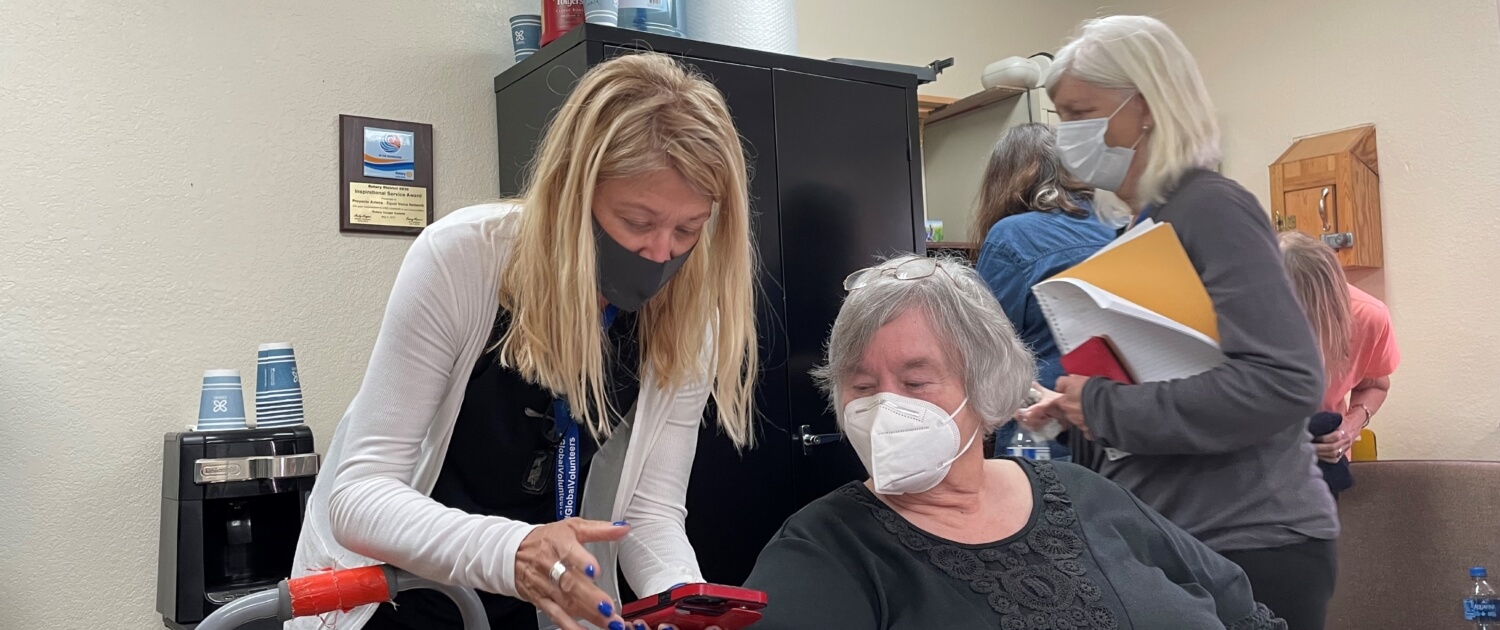
The cost of housing has almost doubled since the beginning of the pandemic. So we don’t have the new construction going on like we used to. And so, we have to do a lot of repairs. It makes a big difference for families to have volunteer help with those simple repairs and rehab projects. It wouldn’t happen without volunteers.
“That’s why I say we’re not just building houses. We’re building relationships with people, and trying to build a better world.”
-Ann Cass
I hear from people like that all the time. For instance, a whole family volunteered from Pennsylvania to build one of our houses. They worked together with the family as much as possible each day in a way that preserved the local recipients’ dignity. Both families were so grateful to have this time to work together. It also spreads throughout the community. There was a man in the same neighborhood who watched the volunteers work. He then came over and asked how he could get help with his house. That’s how we set up the projects for the next group of volunteers. You have to ask yourself how you want to measure your impact. If you go to that man, or to that family, they’ll tell you just how much it means to themselves and their children. But you may not see all the ways you’ve impacted the total community.
That’s why I say we’re not just building houses. We’re building relationships with people, and trying to build a better world.
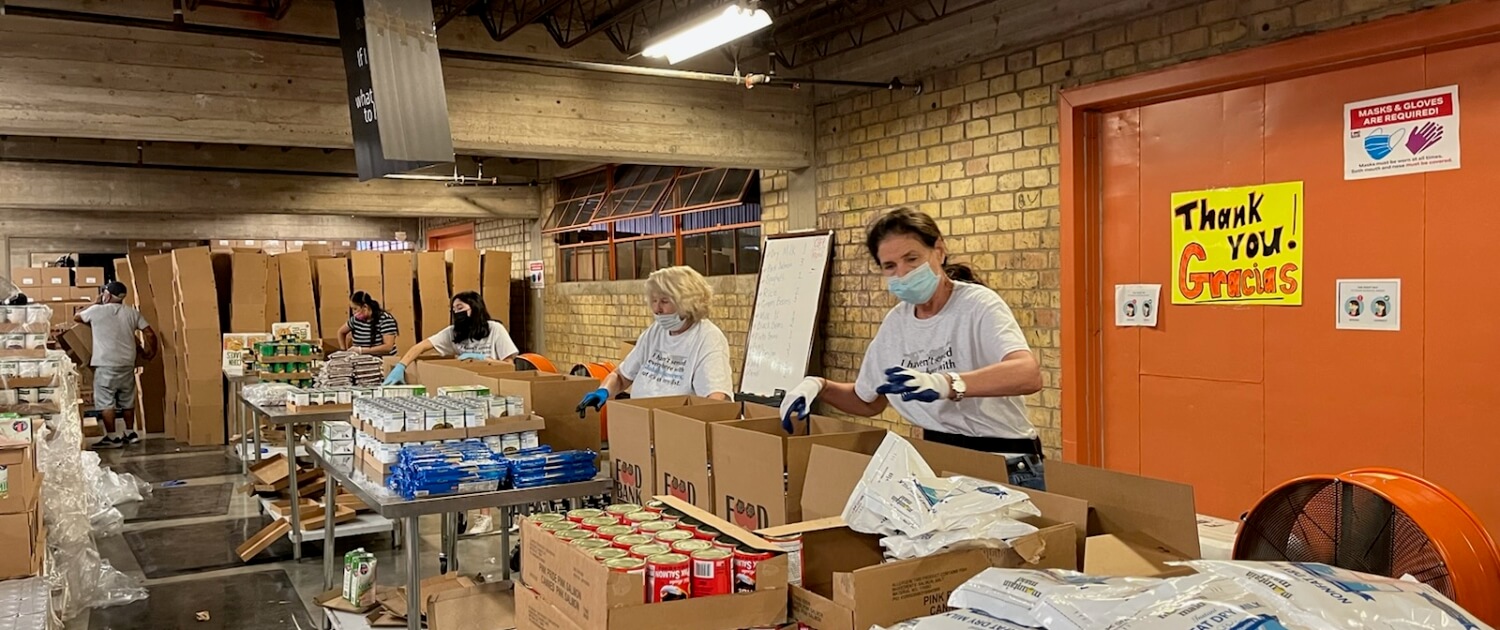
“We’re more than just construction.”
We want volunteers to know what’s happening here in the Rio Grande Valley. Oftentimes, no one knows anything about us – the cause of the challenges and the accomplishments of the people here. That’s why we have volunteers to go to the clinics, the food bank, the relief center. They’re looking for volunteers every day because the need for food has really almost doubled, and the need for care in all forms is constant.
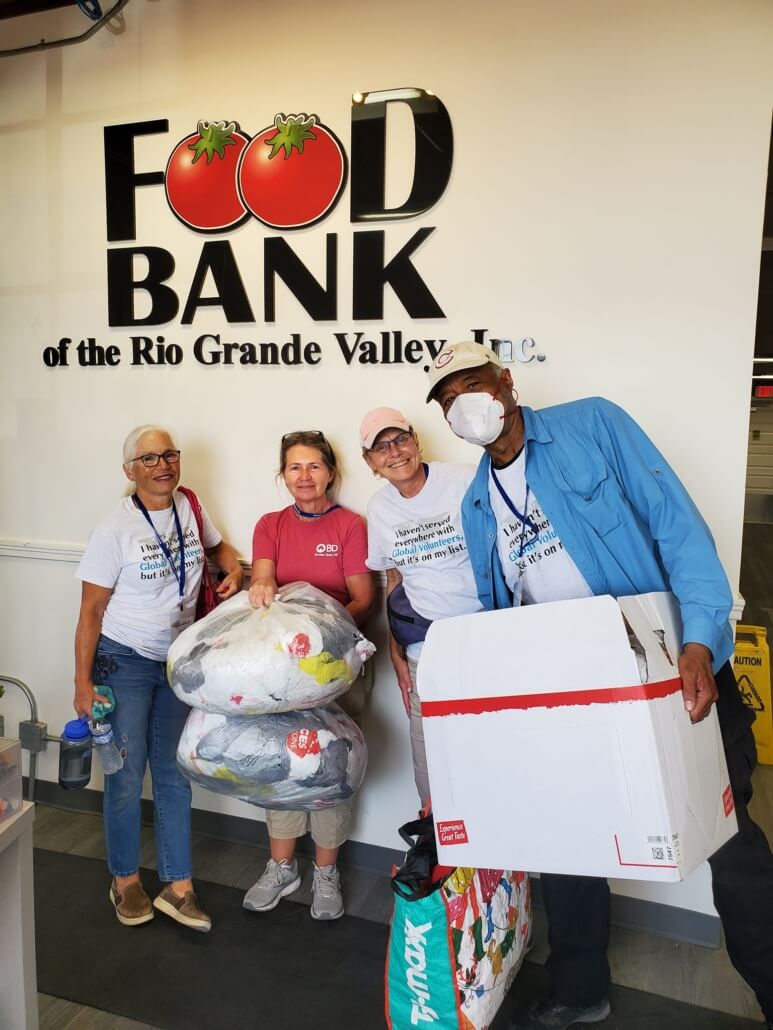
And I think when you sit down and you talk to a asylum seeker; when you hear what they’re struggling with, it can change you. You know, it’s starting a relationship. And we just think our volunteers are able to develop relationships with the people that they’re serving and helping out. We feel we’re more than just construction. We’re about relationships. And that makes a big difference in people’s attitudes.
From that point on, many volunteers tell us it’s changed their life. They came with one attitude about people who lived in the colonias or people coming up from Central America. Then, they work with those people, and that attitude changes. And that’s tremendous. There’s no money that could pay for that. And if one family gets helped that week that ordinarily wouldn’t without volunteers, that’s a big accomplishment. I hope everyone knows they’ve done something very constructive and very important in knowing and understanding people who aren’t like them.
Coming down here and seeing and talking to, and working with, migrants affects volunteers so profoundly. I think a lot of volunteers living up north, they’ve heard negative things about the Rio Grande Valley – about our population. And when they come down here,and start developing those relationships and help, all that changes, and they get a different perspective. They see how people struggle and how hard people work to pick the vegetables, and that the farm workers themselves can’t even afford to buy the vegetables that they pick in the field. Some of them make less than $7.25 an hour. Then you begin to really appreciate what you have, and you want what you have.
“If you make one person’s life better, what an accomplishment; a lot of people don’t do that in a lifetime.”
-Ann Cass
Oftentimes I don’t think privilege is put together with the work of helping people. But, when you think of it, it’s to see yourself in the other person and the other person in you. That’s a privilege. It can seem overwhelming to some people. There’s so much need. But, like the star fish on the beach who’s thrown back in the ocean, if you make one person’s life better, what an accomplishment; a lot of people don’t do that in a lifetime.
“It’s okay to get angry to make change.”
People don’t realize that poverty is a form of violence and it does terrible things, even to children. When volunteers come here and realize that, oftentimes, they get angry. I think that’s an okay emotion to have. The kids in the colonias are under so much stress and so much fear. When you see that, it’s natural to be upset about things that need to change. I have no problems saying that anger is good.
And that’s what our anxiety is. To have the courage; to do something about it. Are you all going to go back home with your anger? Are you going to let the anger paralyze you where you feel there’s nothing you can do? Or are you going to have the courage to act on it, right? So when you get back home, that’s what we’re hoping. That you will do something about what you’ve learned here yourself. You have to face that other people believe different things, because they haven’t seen for themselves. Your Congress people, your elected officials – share with people that have an opposite view, with people who have that kind of influence. Okay? What, what are you going to do with your experience?
You can’t go wrong by volunteering and sharing your gifts. You just can’t go wrong. And when your share your experience, it will make a difference. It may not make a difference for that entire colonia that you’re working in now, but it makes a difference for that one family. And you just have no idea how that energy sprints out. So, helping people and bringing a smile to someone’s face. I mean, there’s no money in the world, no movie director in the world, that can do that better.
“You can’t go wrong by volunteering and sharing your gifts. You just can’t go wrong.” – Ann Cass
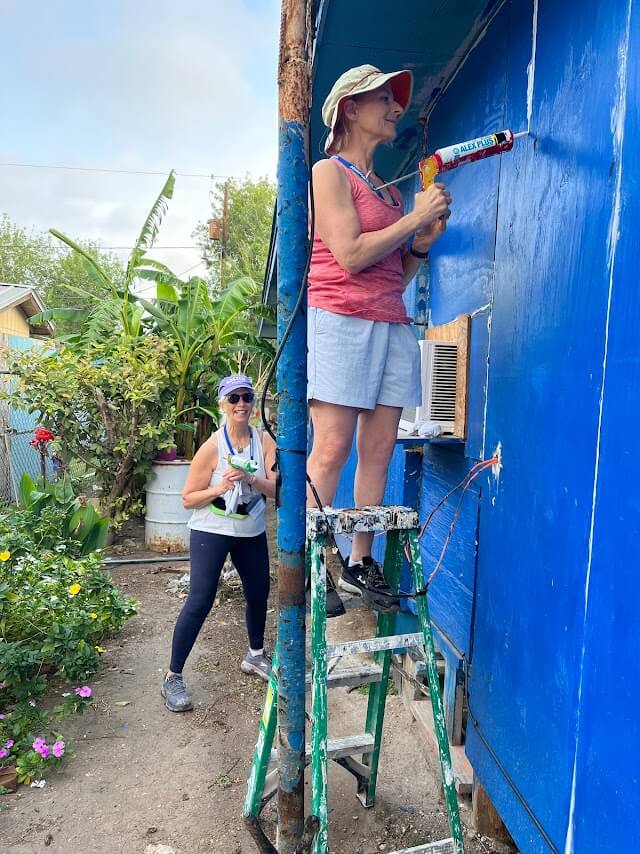

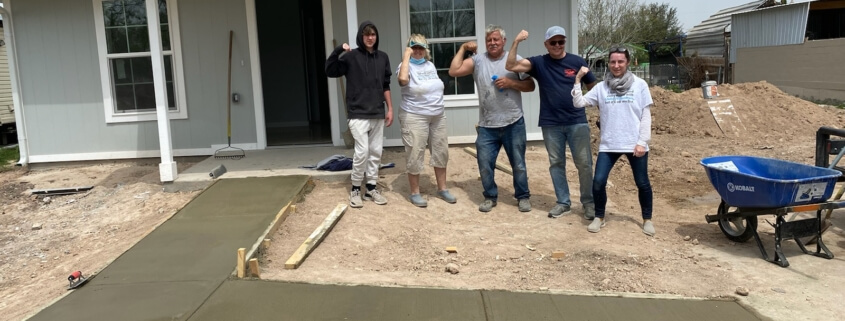


Leave a Reply
Want to join the discussion?Feel free to contribute!